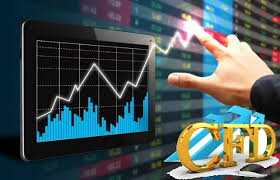
Best CFD Trading Markets: Unleashing Potential for Traders
Finding the best cfd trading markets bestbrokercfd.com is crucial for maximizing your investment potential. As the financial landscape evolves, traders must adapt to the changing dynamics of different markets, understanding the unique characteristics that each one offers. In this comprehensive guide, we will explore various CFD trading markets—discussing their features, advantages, and how to effectively trade within them.
What are CFDs?
Contracts for Difference (CFDs) represent an agreement between a buyer and a seller to exchange the difference in the value of an asset from when the contract is opened to when it is closed. CFDs allow traders to speculate on price movements without owning the underlying asset. This method of trading has become increasingly popular due to the leverage provided, enabling traders to expose large positions with relatively low capital.
Types of CFD Trading Markets
Several types of markets exist for CFD trading, each catering to different trader preferences and strategies. Let’s delve into the most prominent ones:
1. Forex Trading
Forex, or foreign exchange trading, represents the largest financial market globally, with a daily trading volume exceeding $6 trillion. Traders can leverage significant amounts of capital to control positions. The forex market operates 24 hours a day, making it accessible for traders around the globe. Popular currency pairs include EUR/USD, GBP/USD, and USD/JPY.
2. Stock CFDs
Trading stock CFDs allows traders to speculate on the price movements of shares from various companies without actually owning them. This market offers access to well-known stocks such as Apple, Microsoft, and Tesla. Stock CFDs typically reflect the underlying asset price movements, offering dividends and corporate actions to CFD holders, depending on the broker.
3. Index CFDs
Index CFD trading involves speculating on the price movements of stock market indices like the S&P 500, Dow Jones Industrial Average, or the FTSE 100. These indices represent a collection of stock prices, providing a broader market perspective. They are ideal for traders looking for diversification, consolidating their exposure to multiple stocks with a single trade.
4. Commodity CFDs
Commodity CFDs enable traders to speculate on the price movements of physical goods such as gold, oil, and agricultural products. The commodity market can be volatile, influenced by geopolitical events, economic data releases, and supply and demand dynamics. Popular commodities among traders include crude oil, gold, silver, and natural gas.
5. Cryptocurrency CFDs
The rise of cryptocurrencies has paved the way for crypto CFD trading, allowing traders to speculate on the price changes of digital currencies like Bitcoin, Ethereum, and Litecoin. Cryptocurrency CFDs provide exposure to the market without requiring ownership of the actual coins. These markets are known for their significant volatility and potential for high returns, albeit with increased risk involved.
Choosing the Best CFD Trading Market
Selecting the best CFD trading market depends on several factors, including your trading style, risk tolerance, and interests. Here are some aspects to consider:

1. Volatility
Some traders thrive in volatile markets where prices fluctuate dramatically. Forex, cryptocurrency, and commodity markets often exhibit high volatility, presenting opportunities for significant profits—but also increased risks. If you are risk-averse, you might prefer stock CFDs or index CFDs that tend to exhibit more stability.
2. Trading Hours
The trading hours of a market can significantly impact your strategy. Forex offers 24/5 trading opportunities, while stock markets are limited to specific hours. If you are a trader who prefers round-the-clock opportunities, the forex market might be the ideal choice.
3. Leverage Options
Leverage enables traders to control larger positions with less capital, but it also increases the risk of significant losses. Different markets offer varying degrees of leverage, and understanding these options is crucial. Forex typically offers higher leverage compared to stocks, making it attractive for high-risk tolerance traders.
4. Regulatory Environment
Each market is governed by specific regulations that can influence trading practices. Make sure to choose a market that operates under robust regulatory frameworks to protect your invested capital. Researching CFD brokers is essential to ensure compliance with local and international regulations.
Strategies for Successful CFD Trading
Successfully navigating CFD trading involves employing effective strategies tailored to your chosen market:
1. Technical Analysis
Utilizing technical indicators, such as moving averages and RSI (Relative Strength Index), can help traders identify potential entry and exit points. Technical analysis allows traders to make informed predictions based on historical price movements.
2. Fundamental Analysis
Understanding economic indicators and news events is crucial in CFD trading, particularly in markets such as forex and commodities. Monitoring relevant news releases can give you insight into price movements and help you make informed decisions. Always stay updated on economic calendars and reports.
3. Risk Management
Risk management is paramount in CFD trading. Setting stop-loss orders and maintaining a balanced portfolio can help mitigate potential losses. Ensure that you only risk a small percentage of your capital on each trade to protect your account from significant drawdowns.
4. Stay Informed
Keeping abreast of market developments, news, and trends is vital for CFD traders. Utilize reputable financial news sources and trading forums to gather insights and share strategies with fellow traders.
Conclusion
In conclusion, choosing the best CFD trading markets boils down to understanding your trading style, risk appetite, and market dynamics. Whether you trade forex, stocks, indices, commodities, or cryptocurrencies, each market comes with its own set of opportunities and risks. By implementing the strategies mentioned and continuously educating yourself, you can navigate the CFD landscape effectively and potentially maximize your returns.
